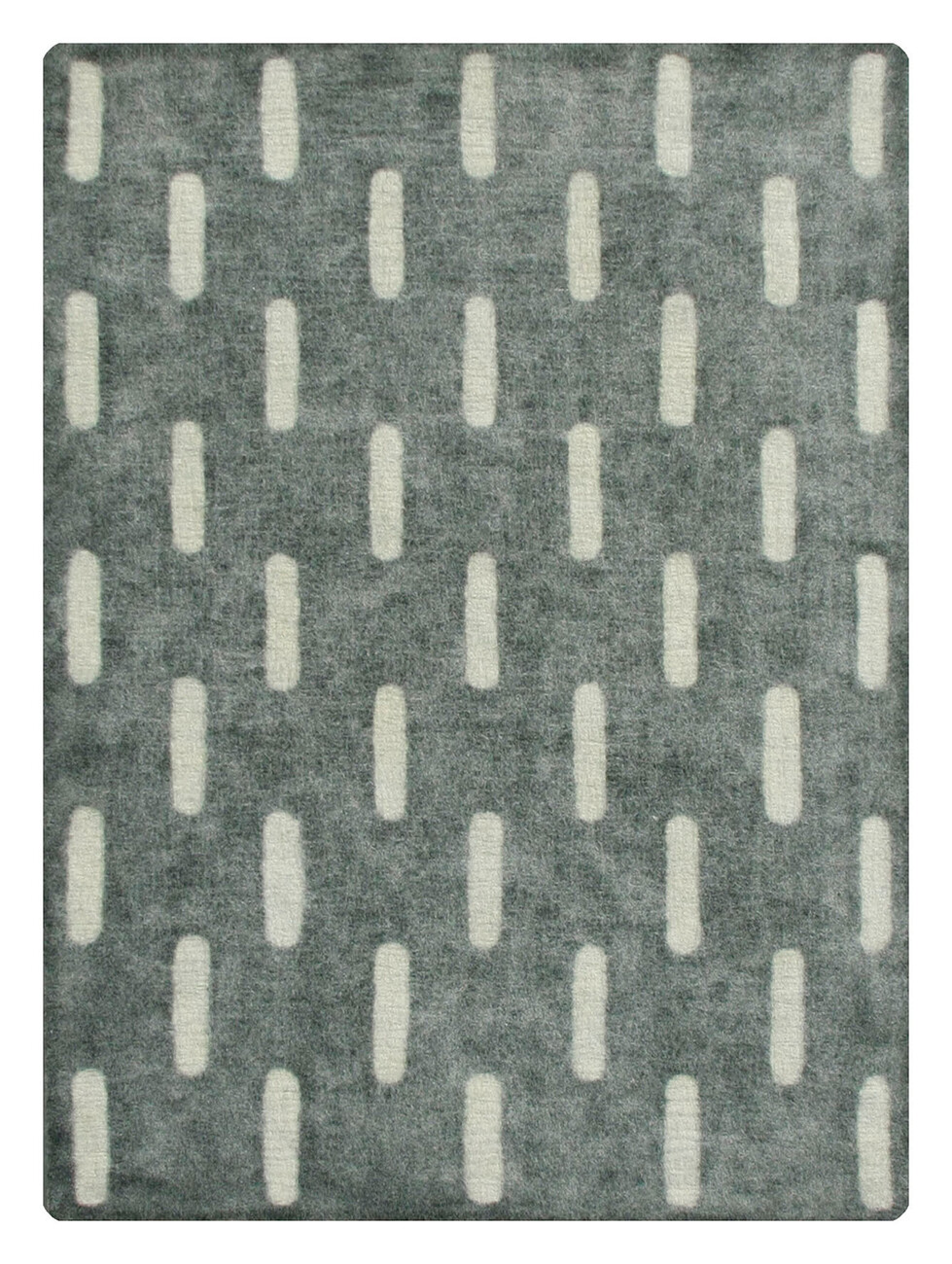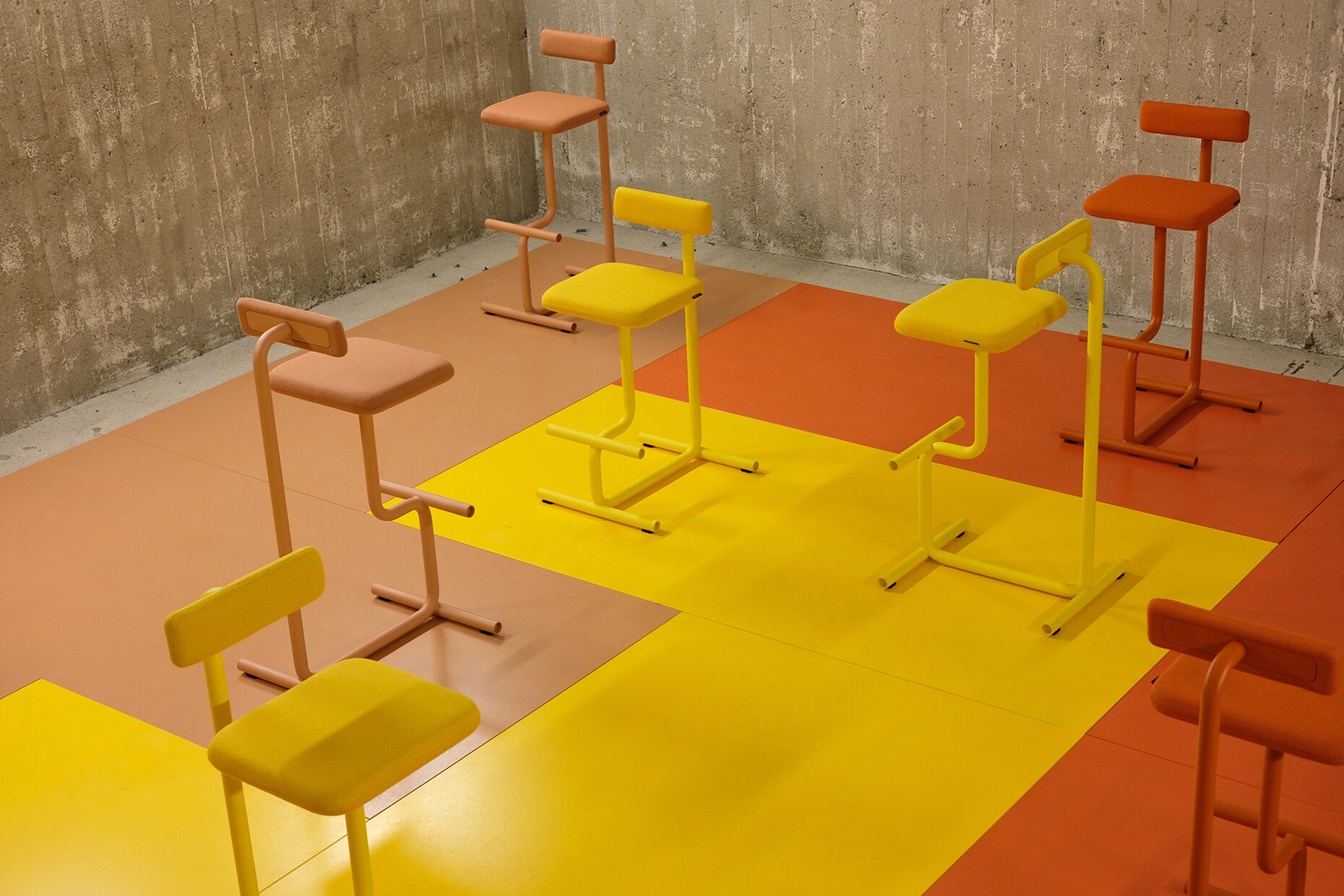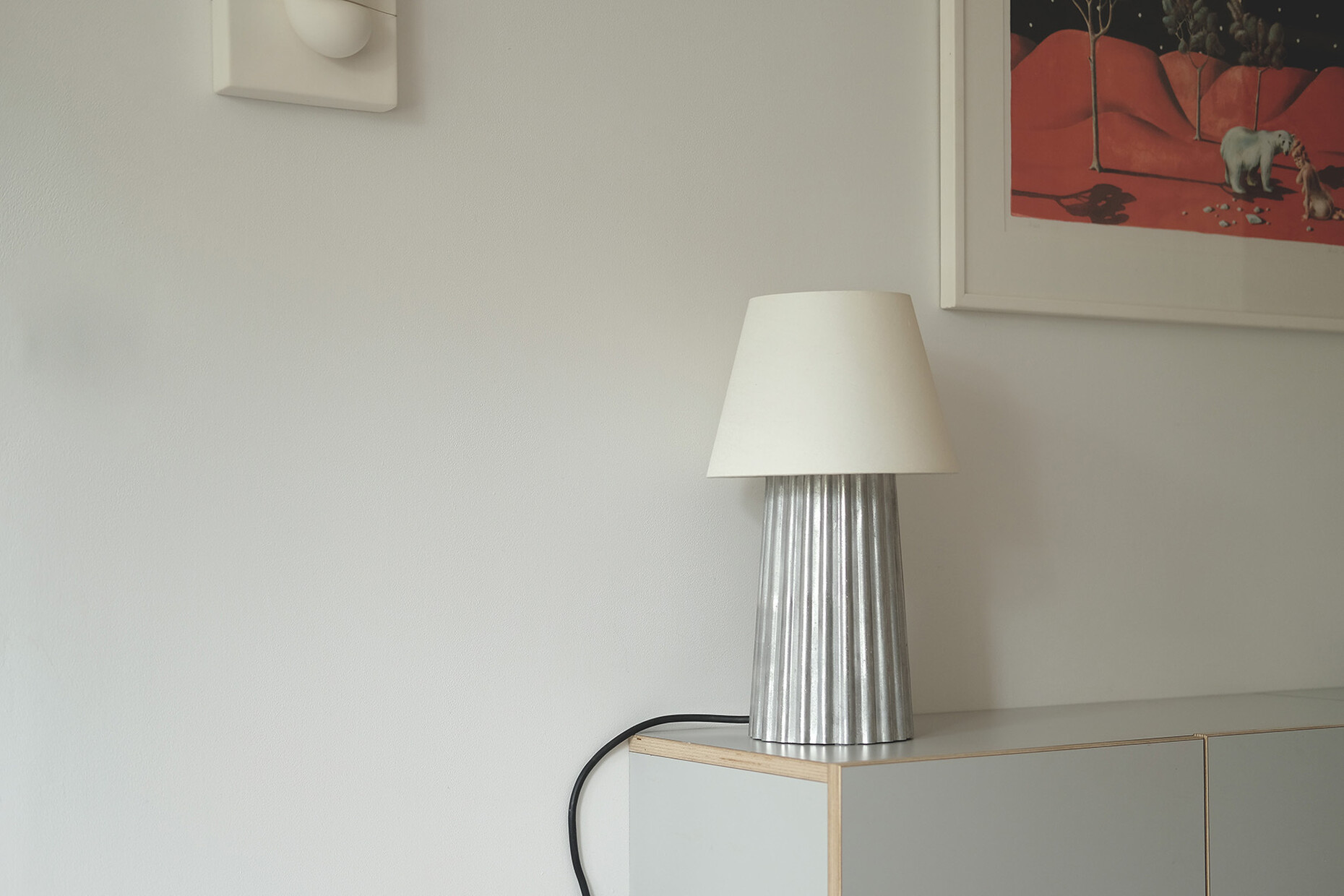YOUNG TALENTS
The new self-evidence
Originally from Solingen, Ronja Reuber now lives in Stockholm. Before she lived for many years in Småland - the southern Swedish province is not only an idyll of lakes, forests and oxblood-coloured wooden houses, but also the home of author Astrid Lindgren and IKEA founder Ingvar Kamprad. Reuber's name, which is reminiscent of Lindgren's novel heroine Ronja Räuberochter, was not chosen entirely by chance, she admits with a laugh. However, the fact that she works in design today has more to do with her parents than with the famous furniture store. "My mother was a stonemason, my grandfather a carpenter — so in a way I grew up in the workshop," says Reuber, who still prefers to work three-dimensionally with her hands.
After a brief foray into costume design, she now designs textiles, lighting and furniture. The materials and styles of the graduate of the Swedish Beckmans College of Design vary. What unites the different designs, however, is her preoccupation with sustainability. More precisely, with the principles of the circular economy, which should reduce waste and make products and raw materials recyclable and repairable. To make this possible, a rethinking of design is needed above all: in the choice and combination of materials, but also in the way users interact with goods. Experts assume that more than 70 percent of a product's ecological footprint is determined in the design phase. So design has a special significance if we want a more environmentally friendly, even regenerative economy. And for that, we need forward thinkers and co-thinkers. Reuber is only at the beginning of her career - she finished her studies in 2020 — but her attitude is clear and formulated. Her work is often about the resource-saving use of raw materials, their recyclability and the sustainable attachment of people to objects. Where does her ecological awareness come from? "My generation is in need of explanation," she says. She couldn't just design the umpteenth chair without reflecting on what for. "My answer to that is more poetic than pragmatic," says Reuber. "Of course we have enough seating for everyone in the world. But I compare design to arts like music. There will always be melodies, expressions or stories that still want to be told - otherwise the world stands still. And design is one way to do that".
That poetry and pragmatism do not have to be mutually exclusive, however, is demonstrated by her latest design: a straight-lined, striking piece of seating furniture for the Scandinavian company Offecct, which is intended to be used in restaurants as well as in offices. "My goal was a stable bar stool made of as little material as possible," says Reuber. Tubular steel was used, which, thanks to its mobility, promotes active sitting and thus also has ergonomic qualities. Further comfort is provided by the backrest and upholstery, which were not glued together. This means that "Nomole" can be easily updated, renewed and repaired. Similar ideals are at stake in Reuber's felt carpets for Peace Industry from Stockholm. Here she recognised untapped potential: "The company's carpets always had two sides, but it never made anything of the design possibilities of the backs. I wanted to change that because I believe that users want to keep flexible products longer," Reuber explains. That's how the idea for a zero-waste technique came about, where pieces are cut out of the carpets and reinserted the other way round. The result is two-in-one products with abstract patterns that never get boring.
Circular design is actually nothing new, says the designer. After all, even back then people designed things that were supposed to last, that could be taken apart and repaired instead of being thrown away. And she adds: "So I don't see this concept as modern, but as natural. (ncm)






















